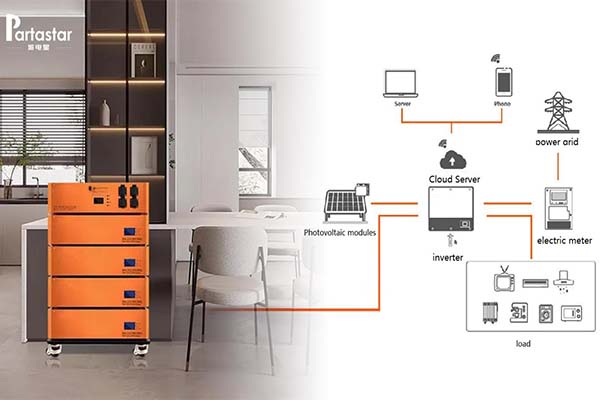Home Energy Storage System has gained significant popularity in recent years as an efficient way to manage electricity usage and ensure uninterrupted power supply during outages. One crucial aspect of Home Energy Storage Systems is the battery backup capacity. In this article, we will delve into the topic of how long a 1500 battery backup lasts, discussing key factors that influence its duration, and exploring the benefits and considerations of Home Energy Storage System
Understanding Battery Backup Capacity:
Battery backup capacity refers to the amount of energy a battery can store and supply during a power outage or when the grid is unavailable. It is typically measured in kilowatt-hours (kWh). A 1500 battery backup, therefore, indicates that the battery can store and deliver 1500 watt-hours of energy.
Factors Affecting Battery Backup Duration:
Several factors influence the duration of a 1500 battery backup. Understanding these factors is essential for proper utilization and maximizing the benefits of Home Energy Storage System.
1. Power Consumption:
The primary factor impacting the duration of a 1500 battery backup is the power consumption of the connected devices. The more power your household appliances and electronics consume, the faster the battery backup will be depleted. It is crucial to consider the power requirements of your essential devices and appliances to estimate the backup duration accurately.
2. Battery Capacity and Efficiency:
The capacity and efficiency of the battery itself play a vital role in determining backup duration. Different battery chemistries and technologies have varying energy storage capabilities and discharge rates. Lithium-ion batteries, commonly used in Home Energy Storage System, offer high energy density and efficiency, making them ideal for longer backup durations.
3. Depth of Discharge (DoD):
The depth of discharge refers to the amount of energy drawn from the battery before recharging it. In general, shallower discharges help prolong the battery's lifespan. While a 1500 battery backup can deliver its full capacity, it is advisable to avoid fully discharging the battery regularly. Maintaining a reasonable DoD, such as 80% or less, can extend the backup duration and enhance the battery's longevity.
4. Charging and Discharging Rates:
The rate at which the battery charges and discharges affects the backup duration. Some home energy storage systems allow for faster charging rates, enabling quicker replenishment of the battery backup. Similarly, the discharging rate determines how quickly the battery delivers power to connected devices during an outage. It is essential to consider the charging and discharging capabilities of the system to optimize backup duration.
Benefits of Home Energy Storage System:
Home energy storage systems, with their battery backups, offer several benefits beyond uninterrupted power supply:

1. Energy Independence:
By installing a home energy storage system, homeowners can reduce their reliance on the grid and have greater control over their energy usage. This leads to increased energy independence and the ability to manage electricity costs more efficiently.
2. Time-of-Use Optimization:
Many regions have time-of-use (TOU) pricing, where electricity costs vary based on the time of day. Home energy storage systems allow users to store excess energy during periods of low demand and use it when electricity prices are higher, helping to lower overall energy expenses.
3. Integration with Renewable Energy:
For homes with solar panels or other renewable energy sources, home energy storage systems enable efficient utilization of generated energy. Excess energy can be stored in the battery backup for later use, reducing reliance on the grid and maximizing the benefits of renewable energy.
Considerations for Home Energy Storage System:
While home energy storage systems offer numerous advantages, there are a few considerations to keep in mind:
1. Cost:
Home energy storage systems, including the battery backup, can involve a significant upfront investment. It is important to evaluate the long-term financial benefits against the initial costs and consider factors like electricity rates, incentives, and potential savings.
2. System Sizing:
Choosing the right-sized system is crucial to ensure optimal backup duration and energy management. Assessing your household's power requirements, daily energy usage patterns, and specific needs will help determine the appropriate battery capacity and overall system size.
3. Maintenance and Lifespan:
Home energy storage systems require regular maintenance to ensure optimal performance. Understanding the manufacturer's recommendations for battery maintenance, warranty coverage, and expected lifespan will help plan for replacements or upgrades in the future.
Conclusion:
A 1500 battery backup's duration in a home energy storage system depends on various factors, including power consumption, battery capacity, depth of discharge, and charging/discharge rates. By carefully considering these factors and understanding the benefits and considerations of home energy storage, homeowners can make informed decisions about implementing an energy storage solutions that meets their specific needs. As technology continues to advance, home energy storage systems are becoming increasingly efficient and affordable, offering a reliable and sustainable approach to power backup and AI Home Energy Management.



